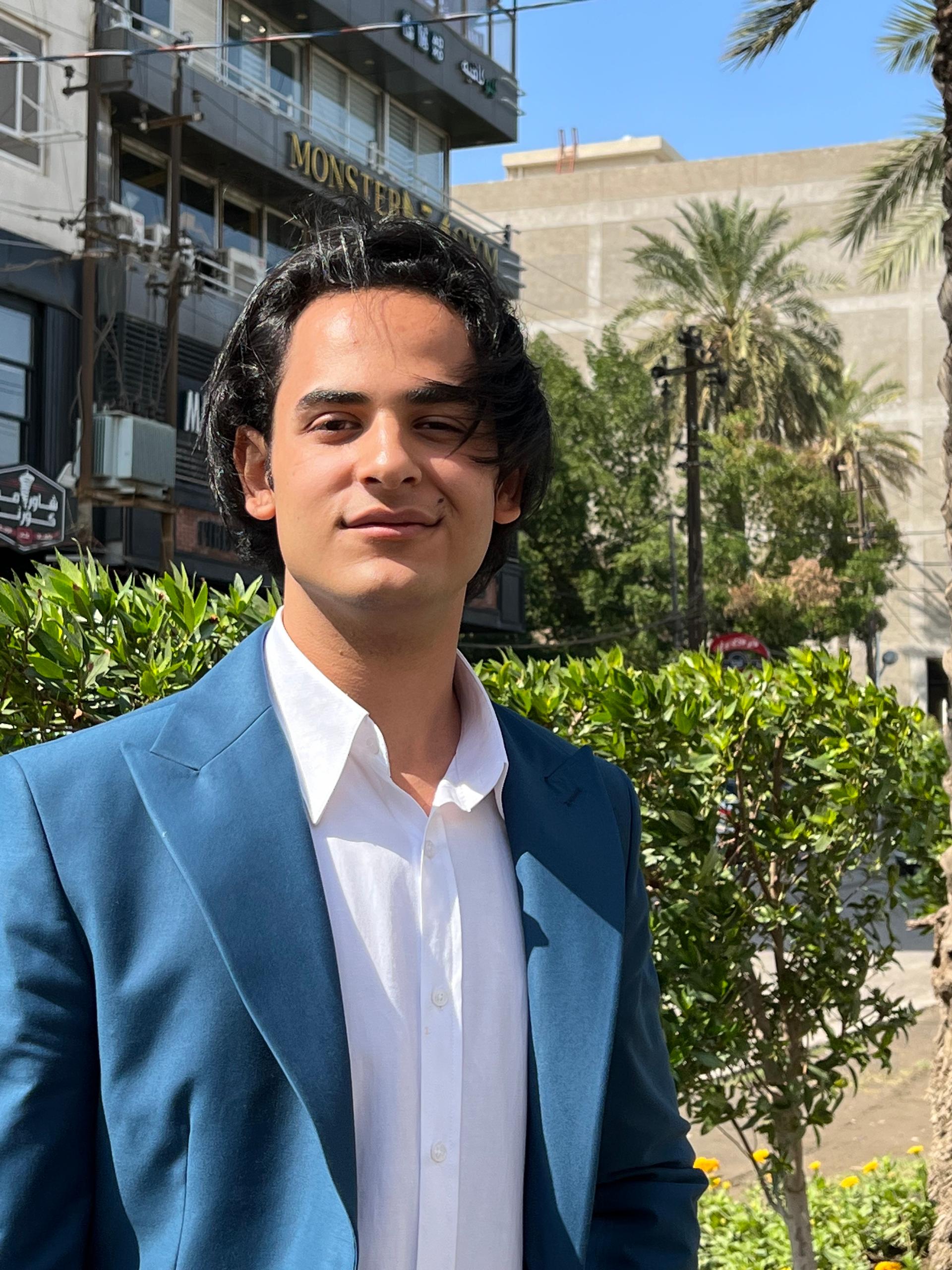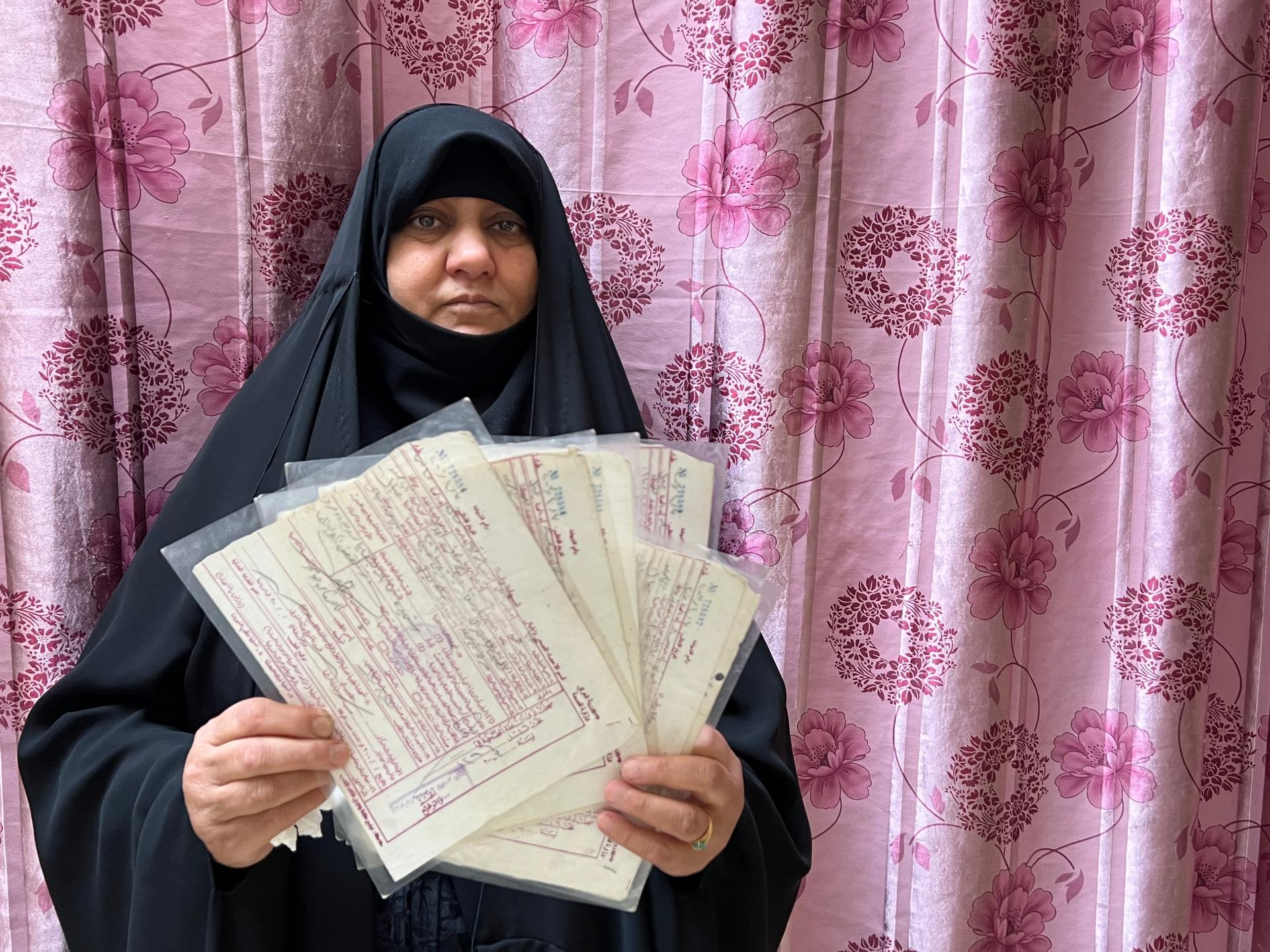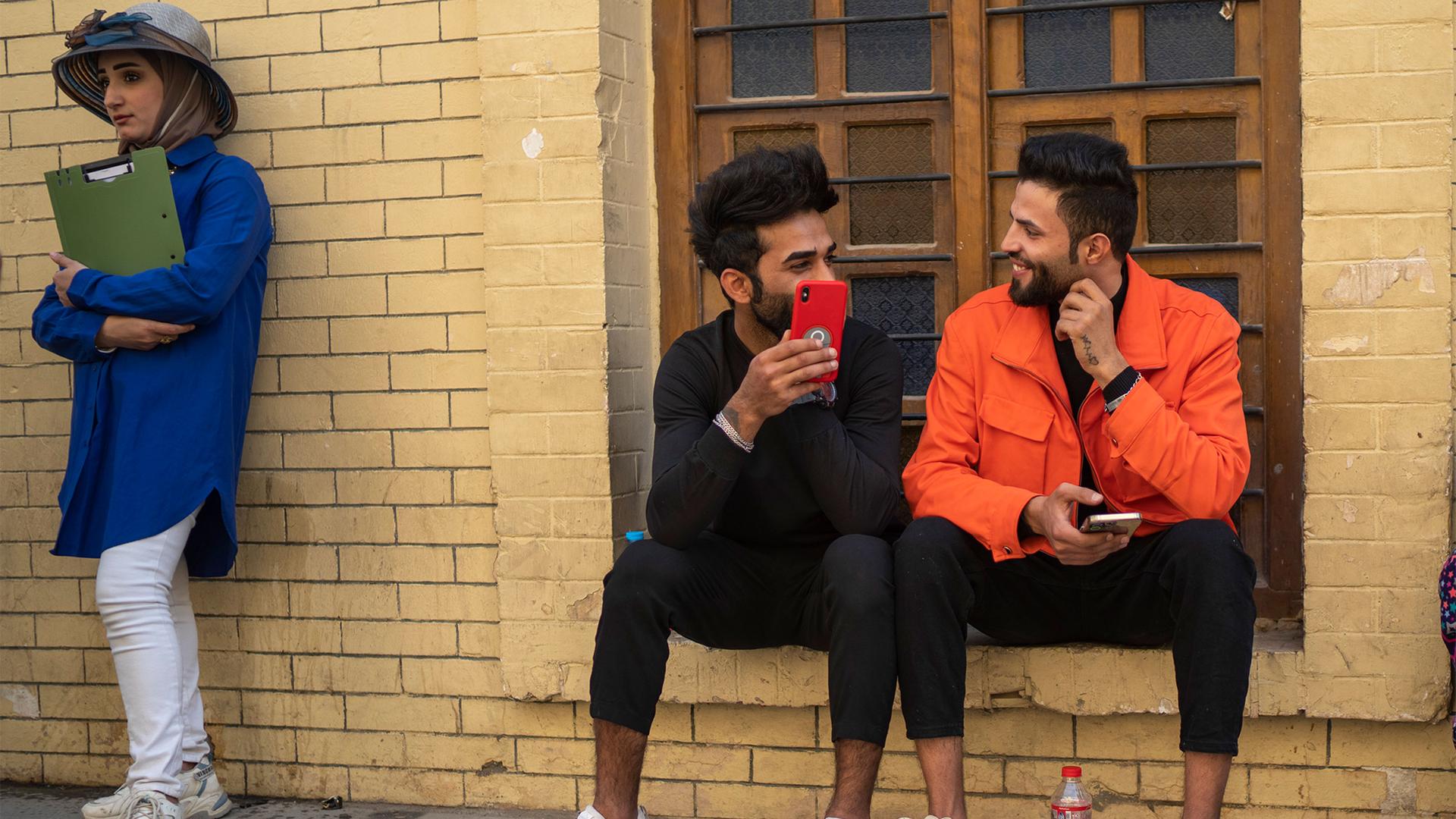Young Iraqis reflect on the US-led invasion, its aftermath and their hopes for the future
Mohammad Hashim Khazim wasn’t supposed to be born on the day the US invaded his country.
His mother had planned to deliver him at a hospital in the Iraqi capital.
But on March 20, 2003, as American jets bombarded Baghdad, Khazim’s mother went into labor.

“She couldn’t make it to the hospital,” Khazim said. “She was too scared they might get hit on the way.”
Her only option was to deliver him at the home of a neighbor who had some experience delivering babies.
The years of war in Iraq have touched everyone’s lives in the country, but for younger Iraqis like Khazim, it is the only reality they have ever known. The invasion tore apart the nation and led to unimaginable violence and sectarian wars.
In 2014, the rise of the so-called “Islamic State” led to even more instability and bloodshed.
According to the latest estimates by Iraq’s Ministry of Planning, at least 40% of the population is under the age of 15. Those born after the year 2000 make up about half of the population. Many of these young Iraqis struggle to find stable work and are fed up with the government. This dissatisfaction led to mass protests that started in 2019.
‘Like in the movies’
Mohammad Hashim Khazim’s first memory of the war was in 2006, when he was just 3 years old.
He was standing outside his parents’ house in Baghdad when an armored vehicle patrolling the streets pulled up. An American soldier, a woman, emerged from the vehicle. He was shocked, he said. He’d never seen a female soldier before. But her uniform, her gun and armored vehicle, all reminded him of what he’d seen in the movies.
“I went inside the house and yelled, ‘I saw an American soldier! A woman!’” he recalled.
Khazim said he feels conflicted about the US-led invasion. On the one hand, he is happy that he doesn’t live under a dictatorship. But at the same time, he can’t wrap his head around all the atrocities that the invasion unleashed.
What pains him more, he explained, is that after all the sacrifices and deaths, Iraq is still not in a good place today.
“Our leaders only care about power,” he said. “As long as there is ignorance, I don’t see a future for this country.”
Since 2005, Iraq has held six parliamentary elections. But corruption and political dysfunction continue to plague the country. Iraq ranks 157 out of 180 countries in Transparency International’s latest corruption index.
And last year, reports surfaced about a $2.5 billion tax embezzlement at the government level. It was described as “the heist of the century.”
A child making sense of war
On a recent March afternoon, the sun was about to set in Baghdad, and the golden rays beamed into a store on a busy street. Twenty-three-year-old Nada Al Quraishi, who works as a cashier, stood in front of shelves lined with rows of bottles of natural hair oil.

Quraishi said she remembers the loud sound of the jets and the bombs that followed the US-led invasion as a small child. She said she spent long hours inside bomb shelters with her cousins who lived on the same street.
As the violence continued, her parents forbade her from going outside. So, home felt like a prison, she said.
Tragedy hit her family when one of her cousins was killed by a rocket that struck his home.
As a child, Quraishi said, she didn’t understand why the Americans were in her city. And why there was so much violence.
Eventually, she was able to go to school again and then went on to graduate from high school.
Today, Quraishi studies law and hopes to become a judge one day.
“But Iraq is full of unknowns,” she said. “Even for those educated like us, there is no guarantee we will find a job after graduation.”
‘I wish I had died’
In the years following 2003, about 200,000 Iraqi civilians were killed, according to Brown University’s “Cost of War Project.”
Layla Hussain Walli’s family was among them.
Walli lost all six of her children in an airstrike on April 6, 2003. On a recent visit to her home, she recounted their names one by one.
“Saba, Sajjad, Ali, Hayder, Sajja and Nouha.”
Her husband Naseef died in the attack, too.
Walli and 42 members of her family were fleeing the bombings in Baghdad to an area north of the city called Khan Bani Saad.

As they took shelter near an open air field, she said, they were hit by an airstrike. Everyone died except for Walli and four other women. Her youngest child was 8 months old. She was breast feeding him.
“I have died a thousand times in the past 20 years. Every year, when schools reopen, when college graduations take place, they remind me of my children.”
“I wish I had died, too,” Walli said. “I have died a thousand times in the past 20 years. Every year, when schools reopen, when college graduations take place, they remind me of my children.”
All these years later, she said, there is nothing she can tell the Americans.
“What can I say? We were just sitting there after evacuating our homes. We had done no harm. Don’t they have children or families, too?”
The invasion of Iraq and its aftermath continue to impact people’s lives.
There are also physical reminders of the war that remain.
In Baghdad today, concrete blast walls are still in place, armored SUVs cruise the streets and around 2,500 US troops are still based in the country.
Even if most Americans have moved on from the Iraq war, for Iraqis, it is a part of their past, present and future.
Related: Iraq’s revived art scene is helping to heal the country’s wounds
